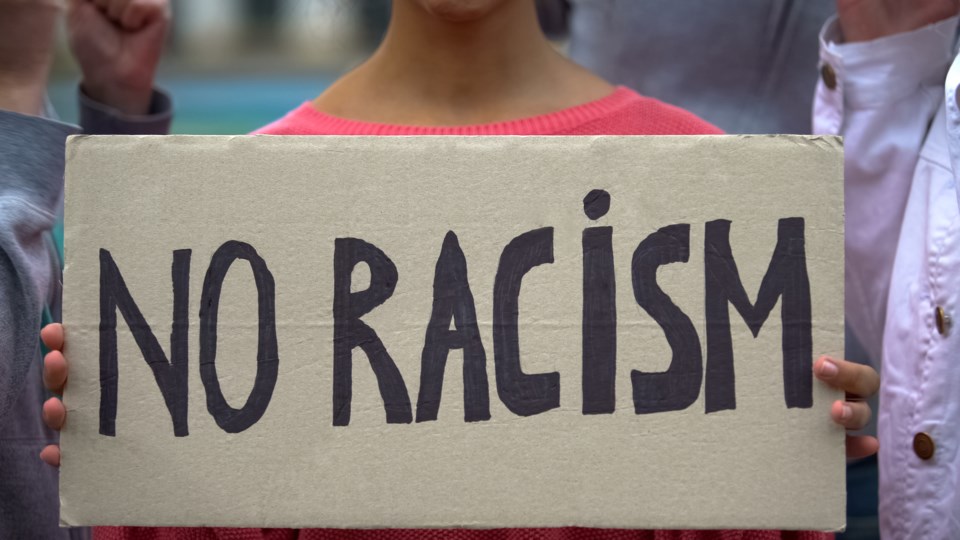The early stages of the COVID-19 pandemic were difficult for most Canadians. Uncertainty about employment, as well as an inability to partake in many activities, made people angry. As was widely reported at the time, Asian Canadians bore the brunt of personal attacks, physical and verbal, on public spaces.
Now that the pandemic is officially behind us, some Canadians are starting to notice a shift in our attitudes. When Research Co. and Glacier Media asked last month about the state of race relations in Canada, 45 per cent (up five points since 2021) reported an improvement over the past two years, while more than a third (37 per cent, down one point) told us that the situation has worsened.
Canadians aged 18 to 34 are more likely to say that race relations are better in Canada in 2023 (56 per cent) than their counterparts aged 35 to 54 (43 per cent) and aged 55 and over (36 per cent).
On a regional basis, perceptions of improved race relations are more prevalent in Quebec (50 per cent), Alberta (49 per cent), Saskatchewan and Manitoba (48 per cent) and Atlantic Canada (47 per cent). Two provinces have decidedly lower numbers: Ontario (42 per cent) and British Columbia (37 per cent).
The results for British Columbia are even more troublesome when we focus on how many residents feel race relations have worsened since 2021. Practically half of the province’s residents (48 per cent) believe this is the case – the highest proportion in Canada.
A deeper dive into specific ethnicities shows that not everybody is having equivalent experiences. Fewer than three in 10 Canadians of African and South Asian descent (23 per cent and 25 per cent, respectively) say race relations are worse now. The proportions rise to 35 per cent among residents of Southeast Asian heritage and to 39 per cent for both European and Indigenous Canadians. Residents of East Asian descent provide a decidedly grimmer assessment on this indicator: 46 per cent of them tell us that things are worse in 2023.
Our views on the full extent of racism in Canada are influenced by what we go through and witness. Almost half of Canadians have personally experienced racism on social media (47 per cent) or during day-to-day interactions with others, such as shopping or taking public transit (46 per cent). Fewer report enduring racist behaviour at school (42 per cent), at work (39 per cent), during interactions with police and law enforcement (33 per cent) or during interactions with the health-care system (32 per cent).
Canadians aged 18 to 34 are more likely to have experienced racism on all of these forms than their older counterparts. This may be a function of the younger generation having an innate ability to categorize what they are told, and how, that older Canadians do not understand. What might seem funny or harmless to an older resident of the country is actually offensive and rude to a younger one.
There are some striking differences in the experience of specific respondents. More than three in five Canadians of Indigenous (61 per cent), Southeast Asian (64 per cent) and East Asian descent (78 per cent) have experienced racism during day-to-day interactions with others. Practically three in five Canadians of Indigenous origins (59 per cent) have endured racism during interactions with the police, along with 47 per cent of East Asians, 45 per cent of South Asians and 43 per cent of African Canadians.
As expected, the percentages are higher when Canadians are asked about what they saw at some point of their lives. Most Canadians report having witnessed racist behaviour on social media (63 per cent), during day-to-day social interactions (58 per cent) and at school (50 per cent), while the proportions are lower at work (45 per cent), dealing with police (42 per cent) or accessing health care (41 per cent).
Our experience at work also shows an age gap. Only 30 per cent of Canadians aged 55 and over witnessed racism at work, compared to 47 per cent among those aged 35 to 54 and 57 per cent among those aged 18 to 34.
It seems that the group with the most experience in the labour market is the least likely to have noticed racism at work. This scenario is similar to the one we have uncovered when asking about harassment. Older women are more likely to look back at the overtures of co-workers as “normal,” while their younger counterparts immediately identify them as impertinent.
Our survey shows a bit of positive momentum on the issue of race relations. The proportion of Canadians who report an improvement is up five points, but certain areas remain far behind in believing that things are actually better. British Columbia is a special case, with the lowest proportion of residents who think there has been an improvement and with scores on witnessing racism at school (58 per cent) and during day-to-day interactions (65 per cent) that are significantly higher than the national average.
Mario Canseco is president of Research Co.
Results are based on an online survey conducted from May 12-21, 2023, among 2,000 adults in Canada. The data has been statistically weighted according to Canadian census figures for age, gender and region in Canada. The margin of error – which measures sample variability – is plus or minus 2.5 percentage points, 19 times out of 20.



